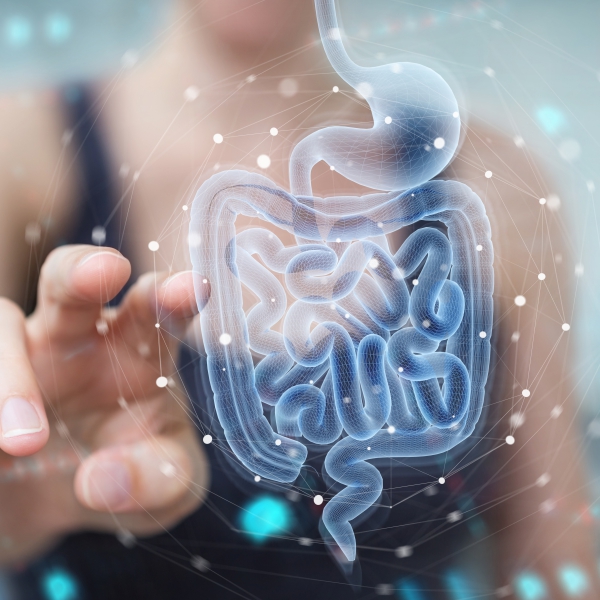"Probiotics and Prebiotics" What Are the Differences?
The human gastrointestinal tract houses an abundance of microbes, the numerous types and amounts of which can affect our general health status. Because of increasing awareness of this aspect of our health, probiotics and prebiotics are becoming mainstream keywords. Although they sound similar, they play different roles in your body.
What are probiotics and prebiotics?
- Probiotics are beneficial bacteria or yeasts that help improve your digestive health and also strengthen your immune system.
- Prebiotics are a group of carbohydrates that are mostly non-digestible dietary fibres. These are food for probiotic bacteria, making them an essential for the growth of the latter.
What makes gut microbiota important?
The main function of gut microbiota, or “good” bacteria, is to maintain the balance of the body, protect it from foreign matters, repel harmful bacteria, aid the immune system and reduce inflammation.
Our intestinal epithelial cells and mucosal immune response together form the first vital barrier that defends the body from pathogens, and a health level of good microbes is crucial for both. Gut microbiota also promotes innate immune functions such as phagocytic activity of neutrophils and cytotoxic activity of natural killer (NK) cells that is vital for the human body to battle any tumour progression and angiogenesis.
Several studies report the benefits of probiotics in treating irritable bowel syndrome (IBS) as well as preventing and relieving antibiotic-associated diarrhoea. Even so, the strains of the microbes must be considered as each strain offers different benefits, and a good diversity of gut bacteria therefore offers optimal impact on the immune system with more benefits including reduction of the risk of obesity.
Additionally, gut bacteria also produce vitamin K which is needed for blood clotting and short-chain fatty acids (SCFA). The latter fuel intestinal epithelial cells and strengthen intestinal walls, which protect the body from harmful substances and pathogens. Furthermore, SCFAs help reduce inflammation and the risk of cancer.
How does diet affect gut microbiota?
Many factors can affect the microbiomes in the human gastrointestinal tract such as genetics, age, environment and diet. Our daily diet has a major impact on the balance between healthy and harmful microbes – for example, babies that are breastfed will receive healthy gut bacteria from their mother’s milk sufficient for strengthening their immune system.
Foods that are high in sugar and fat upset the balance of gut bacteria and will cause the level of Bacteroidetes to decrease and of Firmicutes to increase. The ratio of these two genera of bacteria is associated with a higher body mass index (BMI) and contributes to other health problems such as insulin resistance. Therefore, eating unhealthily causes harmful bacteria to grow and overcrowd healthy bacteria, leaving their number too low to function effectively. In addition, the use of antibiotics is damaging to good microbes in the gut, especially in children and adolescents.
Foods with probiotics and prebiotics
We can increase the level of good microbes in our body by regularly consuming foods that contain probiotics and prebiotics.
Foods that are rich in probiotics include yogurt, sauerkraut, kimchi, kombucha, kefir, miso, tempeh and products that have “live and active” cultures.
Examples of foods rich in prebiotics are nuts and legumes, oats, bananas, berries, asparagus, onions, garlics, leeks and Jerusalem artichoke.
How safe are probiotic supplements?
Probiotic supplements come in various forms such as drinks, capsules or powder. They are considered generally safe because the probiotics used in supplements are found in natural sources and in the body. However, during the first week of using supplements you may experience mild digestive se such as diarrhoea, constipation or bloating as your gastrointestinal tract adjusts.
However, probiotic supplements must be taken with caution by certain groups of people due to risk of infection. These groups include people with weakened immune systems, critically or severely ill patients, those who have recently undergone surgery as well as children or infants. It is best to talk with your doctor before starting taking a probiotic supplement.
References
- Lenoir-Wijnkoop I, Sanders ME, Cabana MD, Caglar E, Corthier G, Rayes N, et al. Probiotic and prebiotic influence beyond the intestinal tract. Nutrition Reviews. 2008;65(11):469–89.
- Peng M, Tabashsum Z, Anderson M, Truong A, Houser AK, Padilla J, et al. Effectiveness of probiotics, prebiotics, and prebiotic‐like components in common functional foods. Comprehensive Reviews in Food Science and Food Safety. 2020;19(4):1908–33.
- Saad N, Delattre C, Urdaci M, Schmitter JM, Bressollier P. An overview of the last advances in probiotic and Prebiotic Field. LWT - Food Science and Technology. 2013;50(1):1–16.
- Zhang M, Yang X-J. Effects of a high fat diet on intestinal microbiota and gastrointestinal diseases. World Journal of Gastroenterology. 2016;22(40):8905.
- Buttriss JL, Stokes CS. Dietary Fibre and Health: An overview. Nutrition Bulletin. 2008;33(3):186–200.
- Dimidi E, Cox SR, Rossi M, Whelan K. Fermented foods: Definitions and characteristics, impact on the gut microbiota and effects on gastrointestinal health and disease. Nutrients. 2019;11(8):1806.
- Zmora N, Suez J, Elinav E. You are what you eat: Diet, health and the gut microbiota. Nature Reviews Gastroenterology & Hepatology. 2018;16(1):35–56.
- National Institutes of Health, Office of Dietary Supplements. Probiotics [Internet]. 2019 [updated 2022 Jun 2, cited 2022 Dec 15]. Available from: https://ods.od.nih.gov/factsheets/Probiotics-HealthProfessional/




